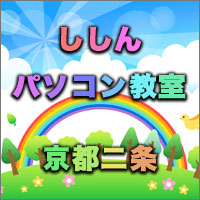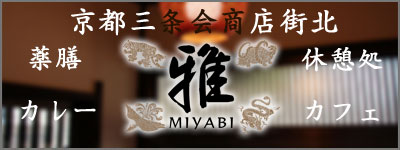Some people just don’t get it until they’re in the coffin, Rude Kyoto Phrases: The “No Thanks” Edition
Posted date:2025-07-03Author:つばくろ(Tsubakuro) Transrator:ポンタ(Ponta)
Category:Kyoto Dialect , Talk about Kyoto
広告
adsense4


Unrefined people may not realize it until they are in their coffins. The harsh Kyoto dialect: “Refusal Edition”
Typical Kyoto people use both their true feelings and formalities in conversation.
It is not exaggerated that the basics of Kyoto language is just one word “ambiguity.”
It is a subtle and gentle way of speaking, yet it has a unique way of touching the hearts of others. It seems that this is what makes them feared by outsiders as “unfriendly.”
Well, apart from whether it is true or false that Kyoto people are truly “unfriendly”, when a lot of connotations that Kyoto language has are performed most effectively is in situations where one is declining an offer.
A variety of expression for declining something among Kyoto language I’ll introduce from now on might be said high-level communication tactics that people from other regions can’t use effectively.

The examples
1: Someone you don’t know very well asks you to do something unreasonable.
When you want to refuse it
“No, I’m sorry, but I’m not really good at that. Maybe you should find someone who’s better at it.
Or,
“Could you give me some time to think about it? I just received a request from someone who has been very kind to me. My head is full right now, and I can’t think straight. Could you give me some time? I’m sorry.”
In Kyoto language, if someone says “chotto~,” you can safely assume that they are refusing your request.
No matter what words follow “chotto~,” it ultimately means that they are refusing your request.
In addition, in the example of refusal below, the person goes so far as to say, “I was asked to do a favor by someone who has done me a favor,” implying that “you are not someone who has done me a favor.”
This is an unfriendly and effective expression unique to Kyoto language.
2: What if they are persistently intruded?
“No, that’s not possible. You are peculiar person. Please be patient.”
This is an expression of extreme anger and rejection.
If someone says to your face that you are a strange person, it is tantamount to being deeply despised by the Kyoto person.
If you don’t understand this, you will be shunned in Kyoto from then on.
3: They received a call from someone they didn’t want to see.
When turning it down
“Thank you very much. I’ll call you again when the time is right.” (And then never call you again.)
If they say, “I’m sorry, but I have plans that day,” there is a risk that they will be suggested another day.
Instead of that, this is a typical example of a Kyoto language refusal that prevents the other person from taking further action by saying that they will call you.
4: When you are presented with a boring idea
When you want to reject it
“That’s interesting.”
In Kyoto, if someone suddenly says “interesting” to your face, it is not a compliment.
It implies contempt, such as “strange,” “incomprehensible,” or “stupid.”
In other words, being told bluntly, “That’s interesting,” is equivalent to being told, “I cannot accept what you are saying,” or “I don’t understand it.”
5: When someone complains unreasonably
“No, that’s interesting. You’re strange person. I see, is that so? Well, I’m very sorry. We’re not very knowledgeable, so we don’t really understand, but we learned a lot. Thank you very much.
After saying, “That’s interesting,” they humbly say, “We’re not very knowledgeable, so we don’t really understand,” while harshly attacking the other person.
On top of that, the closing line, “I learned a lot,” “Thank you very much,” is the final blow to the other party.
6: When they are troubled by solicitations for donations, charitable activities, or religions that you have no intention of joining
“That’s too much for me.”
Or
“I’ll think about it.”
Or
Three generations ago, that nearly ruined our family.
7: When they want to quit lessons or club activities
“I’m going to take a break for a while.”
If Kyoto people say this to you, you should never ask, “When will you resume?”
8: When they want to someone to leave but they linger and make you uncomfortable
“Well, I’m sorry for keeping you here so long. Thank you for your time. See you!”
Saying “Well” prompts the other person to get up and changes the atmosphere of the room.
While formally expressing apologies and gratitude to the other party, they are subtly conveying their true intentions through nuance.
If this is said to you, stand up gracefully and apologize by saying, “I apologize for staying so long.”
9: When they want to end a long phone call
“Well, that’s it then.”
Or
“Well, see you later.”
Or
“Well, take care.”
In Kyoto language, saying “hona” is equivalent to saying “you’re taking too much” or “that’s enough.”
“Hona” is a convenient phrase to use to interrupt the conversation that follows.
10: What is the best way to deal with persistent salespeople who pressure them into buying something?
“I’ll have to ask my husband.”
Or
“I think it’s a good idea, but I’ll have to consult with the president first.”
These are the standard ways Kyoto people use to politely decline unreasonable requests from business partners or customers.
Saying “No” face-to-face can be awkward.
In such cases, the name of a key person suddenly comes up out of nowhere.
While maintaining a humble attitude on the surface, it should be politely declined.

The conclusion
The above examples illustrate how Kyoto language can be used to express refusal in a gentle and subtle manner.
It is safe to say that these expressions are commonly used by Kyoto residents in everyday life.
These expressions include several points that are intended to minimize the shock of clearly “refusing” someone, which could hurt their feelings.
These points are as follows:
1: Use words that show respect for the other person
2: Use indirect expressions throughout
3: Choose words that are ambiguous
4: Never give a blunt refusal, etc.
While keeping these points in mind, Kyoto people can be said to skillfully manipulate words according to the situations at hand.
Finally, I would like to share a memorable experience of being rejected that I actually experienced myself.
It was when I reunited with my best friend from elementary school after decades.
After we were happy to see each other again, my friend asked, “What have you been doing since you left school?”
The columnist took those words at face value and began talking about what had happened up to that point.
Then, my friend responded with, “Really.”
After I continued talking, she said, “Really” again.
After talking a little more, she immediately said, “Really”.
At this point, even columnist realized what was going on and stopped talking.
My childhood friend’s question, “What have you been doing since?” was nothing more than a superficial social nicety.
My friend’s “Well” may not have been as harsh as the examples I mentioned earlier, but it was one of those Kyoto expressions that I would never forget once I heard it.
I still remember well how his refusal perfectly conveyed his true feelings: “Enough of that talk already.”
Author
つばくろ(Tsubakuro)
I was born and raised in Kyoto and am a native Kyotoite.
When I was young, I longed to visit Tokyo and Osaka, which are more bustling than Kyoto, but as I have gotten older, I have come to appreciate Kyoto a little more.
In this site, I will introduce you to some of the best places to explore Kyoto's food that you might otherwise miss at first glance.













